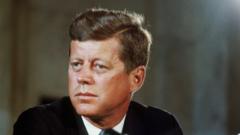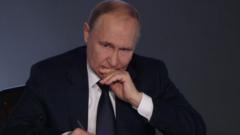Boris Spassky, the renowned chess player who became a symbol of the Cold War era through his legendary match against Bobby Fischer, has passed away at the age of 88 in Moscow. His death was confirmed by the International Chess Federation, which noted that he had been suffering from health issues, including a severe stroke in 2010.
Boris Spassky, Iconic Chess Champion, Passes Away at 88

Boris Spassky, Iconic Chess Champion, Passes Away at 88
Spassky, who famously lost to Bobby Fischer during the iconic 1972 match, has died, leaving a profound impact on the chess world.
Spassky's legacy is marked by his significant achievements in chess, having been hailed as one of the greatest players from the Soviet Union. Arkady Dvorkovich, FIDE's president, praised Spassky as a true gentleman whose contributions to the sport will be remembered. The 1972 championship match against Fischer had immense ramifications that extended beyond the chessboard, capturing global attention amid the Cold War's geopolitical tensions.
Despite the international spotlight, Spassky reportedly felt uncomfortable with the political overtones of the match. His son revealed that the chess legend viewed the contest through the lens of a competitor rather than a pawn in the broader geopolitical struggle. Over two decades later, the public interest in a potential rematch further highlighted the enduring impact of their initial confrontation, illustrating the cultural significance of chess during that era.
The legacy of Boris Spassky continues to resonate, not just for his prowess on the chessboard, but also for his personal perspective on the intersections of sport and politics.
Despite the international spotlight, Spassky reportedly felt uncomfortable with the political overtones of the match. His son revealed that the chess legend viewed the contest through the lens of a competitor rather than a pawn in the broader geopolitical struggle. Over two decades later, the public interest in a potential rematch further highlighted the enduring impact of their initial confrontation, illustrating the cultural significance of chess during that era.
The legacy of Boris Spassky continues to resonate, not just for his prowess on the chessboard, but also for his personal perspective on the intersections of sport and politics.























